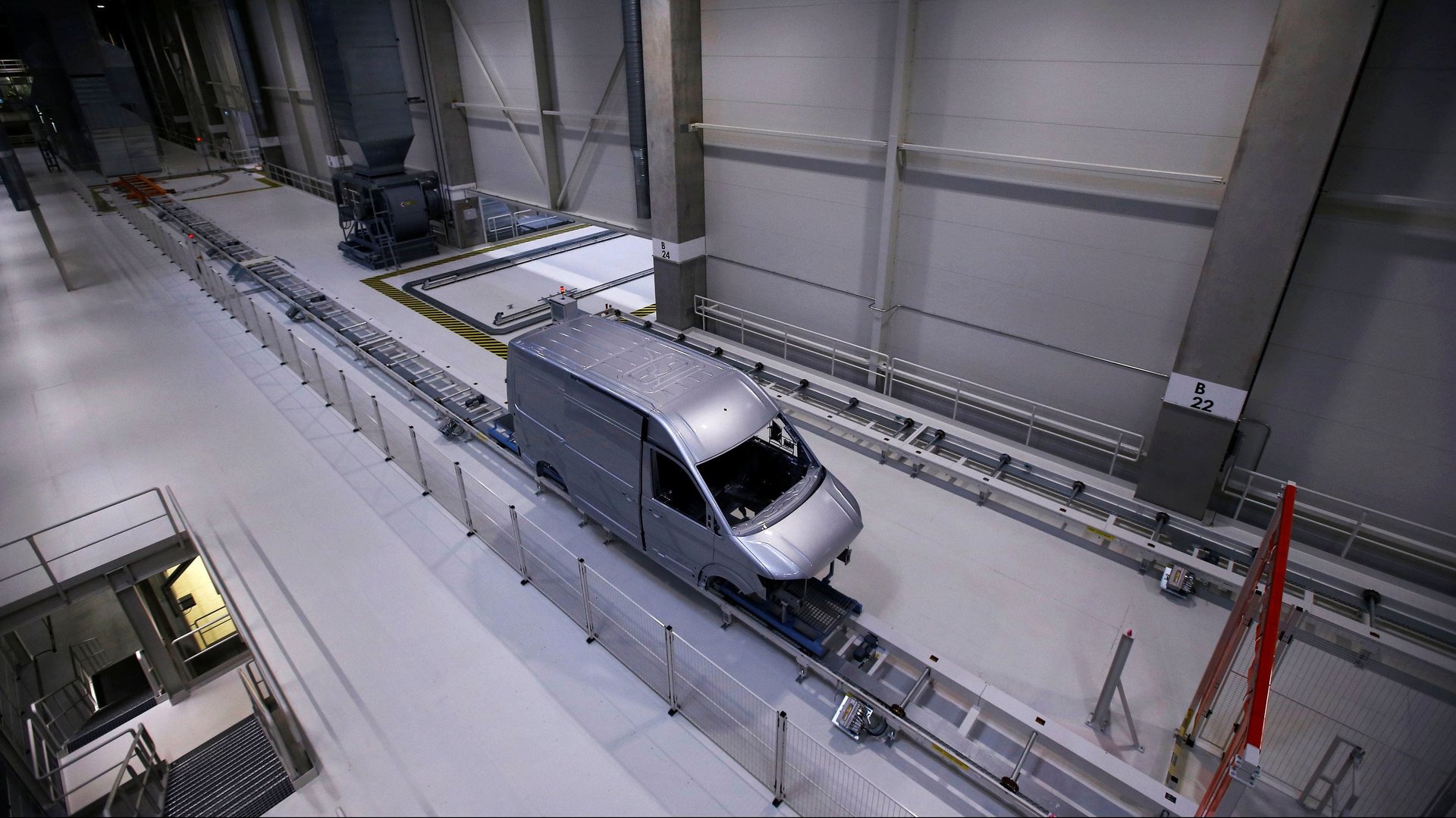Apple is reportedly working with Volkswagen on building self-driving vans
“Hey Siri, call me a ride.”


“Hey Siri, call me a ride.”
Apple has signed a deal with German automaker Volkswagen to develop self-driving cars for its employees, The New York Times reported May 23. The contract doesn’t involve VW Beetles or wagons, sadly, but rather the company’s new, boxy T6 Transporter vans.
Reports that Apple has been working on autonomous technology have swirled for years, with some of the earliest rumors even suggesting it was working on a minivan. What’s been codenamed “Project Titan” within Apple is a long-term project to develop car technology that has flitted between producing software and full-on vehicles over the years. As part of the project, Apple has employed renowned car designers and electric-vehicle charging engineers, poached away from companies including Tesla, Aston Martin, and Alphabet, and yet reports have suggested that it’s scaled back its research as the company couldn’t settle on a path forward. At one point the project had upwards of 1,000 people working on it.
In mid-2017, CEO Tim Cook spoke publicly about Apple’s self-driving ambitions for the first time, saying it was working on “autonomous systems.” It also was awarded a testing license in California around the same time, and now has more of its own modified autonomous vehicles on the road in the state than competitors Waymo and Uber (although those companies both operate in other states as well).
It’s still unclear whether Apple’s end ambitions are to build and sell its own autonomous vehicles, or just the software inside. But the Times’ report suggests Apple has more than just a passing interest. The Times also reported that Apple tried to form partnerships with luxury brands Mercedes and BMW, but was ultimately unsuccessful as it wanted full control over the data and design of the project. It’s now focusing on turning vans into autonomous shuttles for employees, allowing it to make its real-world deployment of autonomous technologies in a controlled environment, as companies such as Ford have done. Others, like Waymo and Uber, are testing on public roads. In March, an autonomous Uber struck and killed a pedestrian passing in front of it when the car’s safety driver couldn’t react quickly enough.
Volkswagen declined to comment on the report, and Apple wasn’t immediately available.